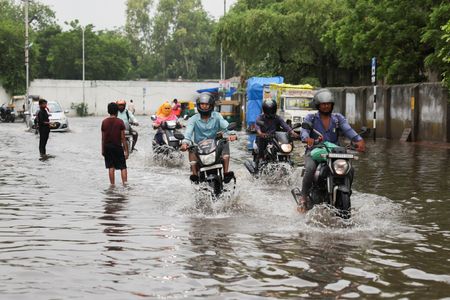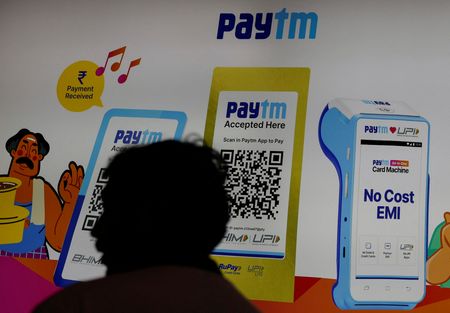By Nikunj Ohri
NEW DELHI (Reuters) -India needs to invest more than $2.4 trillion by 2050 to build climate-resilient urban infrastructure, as its fast-expanding cities face growing challenges from extreme weather events linked to climate change, the World Bank said on Tuesday.
The number of Indians living in cities is projected to nearly double to 951 million by 2050 from 480 million in 2020. But erratic rainfall, heatwaves, and rising sea levels are leaving urban areas in the world’s most populous nation increasingly vulnerable, the bank said in a report.
Without large-scale investments in housing, transport, water, and waste management systems, India will face escalating costs from weather-related damage, said the report entitled “Towards Resilient and Prosperous Cities in India”.
“Cities need to become more resilient if people living in those cities are going to be safe,” Auguste Tano Kouame, the World Bank’s country director for India, said at the launch of the report, which was prepared in collaboration with India’s urban development ministry.
Urban flooding already causes an estimated $4 billion in annual losses in India, the report found. That figure is projected to rise to $5 billion by 2030 and as much as $30 billion by 2070 without remedial action.
The report’s estimates based on conservative urban population growth put India’s investment needs at $2.4 trillion by 2050 and $10.9 trillion by 2070, with those projections increasing to $2.8 trillion and $13.4 trillion respectively if the population is moderately urbanised.
“Timely actions can avert billions of annual damages and losses in flooding and extreme heat while investing in resilient and efficient municipal infrastructure and services,” the report said.
India currently spends about 0.7% of its gross domestic product on urban infrastructure, well below global benchmarks, and must significantly scale up public and private financing, the World Bank report said.
Federal, state and municipal governments must coordinate to improve project financing and provide climate-linked fiscal transfers. And India must increase partnerships with the private sector in areas including energy-efficient water supply, sanitation, solid waste management, and green buildings, it said.
Private finance currently accounts for just 5% of urban infrastructure investment, the report said.
(Reporting by Nikunj Ohri; Editing by Joe Bavier)









